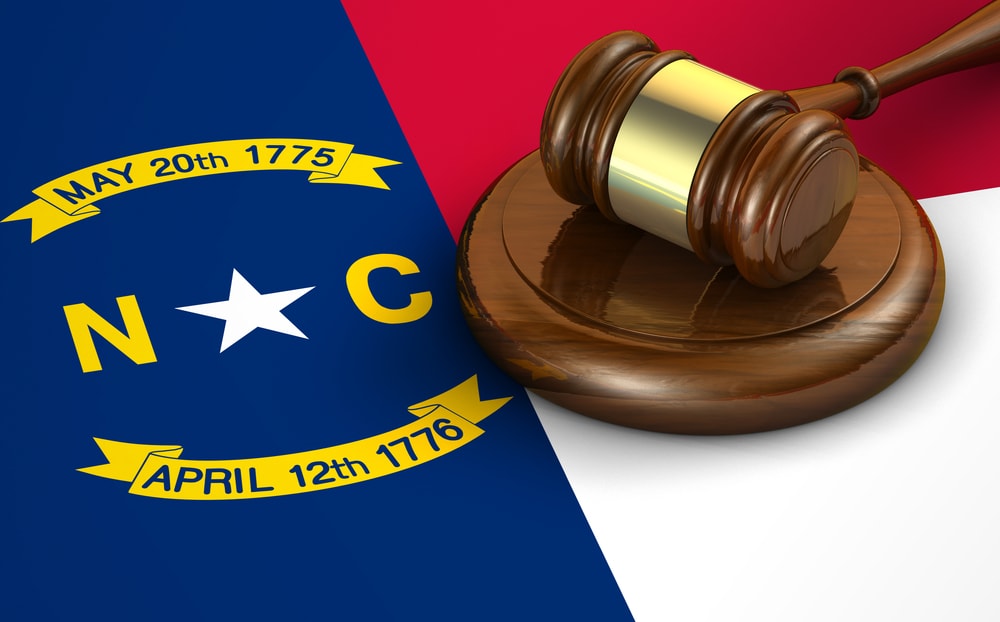Visitors of North Carolina should always keep up with the local laws. This holds true for drug and alcohol laws. North Carolina has several DUI laws on the books. The most commonly-asked questions regarding these laws are:
- What are the categories of penalties for a DUI in North Carolina?
- Does North Carolina have zero-tolerance laws?
- Is Marijuana or other cannabis products legal in North Carolina?
Read this article to learn more about alcohol and drug laws in North Carolina in 2019.
DUI Laws in North Carolina
North Carolina has specific laws for driving under the influence of alcohol or other drugs.
North Carolina considers a 0.08% Blood Alcohol Level (BAC) as legally drunk. They also consider the presence of any drugs as evidence of driving under the influence (DUI).
Zero Tolerance laws for North Carolina
North Carolina has a couple of zero tolerance laws when it comes to driving under the influence of alcohol.
There is no minimum BAC for underage drivers. Just the presence of alcohol falls under this zero-tolerance rule. If the driver refuses to take an alcohol test the presence of alcohol on the breath is enough.
These laws state that anyone younger than 21 will face stiffer penalties than older drivers charged with a DUI:
- The driver’s license is revoked for a full year.
- A fine of up to $1,000 will be placed.
- An additional $250 fee (or, alternatively, jail time and/or community service hours).
- They also owe attorney fees from $500 to $1,000.
- Their insurance increases by up to 400%.
Drivers between 18 and 20 with a clean record can get their driver’s license back. They just need to pay a $100 fine.
Is Marijuana Legal in North Carolina?
Marijuana is not legal in the state of North Carolina. It is one of 17 states in the US that hasn’t legalized marijuana.
North Carolina has relaxed some of its marijuana laws. The North Carolina State Senate approved a bill for CBD treatments in 2014. In 2019, they approved another bill that allowed CBD-based treatments of autism, Crohn’s disease, and other diseases.
These bills are small steps towards making marijuana legal. They also point towards a path to allowing medical cannabis in the state.
Drug and Alcohol-Related Crimes
Drug crimes in North Carolina include:
- Possession: having drugs on your person or having materials to make or use drugs.
- Trafficking: the movement and sale of drugs.
The use of schedule I and II drugs like heroin are felonies. Schedule III through VI drugs have lighter penalties.
Alcohol crimes include:
- Driving Under the Influence
- Selling Alcohol to Minors
- Transporting Alcohol While Underage
Penalties for Drug or Alcohol Abuse in North Carolina
According to the North Carolina Department of Public Safety, there are 5 levels of misdemeanors with DUIs:
- Level V: Drivers can get up to $200 in fines and 60 days in jail. Alternatives include up to 24 hours of community service or a 30-day loss of driving privileges.
- Level IV: Drivers can get up to $500 fines and 120 days in jail. Alternatives to jail time include up to 48 hours of community service or up to 60 days without a license.
- Level III: Punishments are up to $1000 in fines and six months in prison. Alternatives are 72 hours of community service and 90 days without their license.
- Levels II and I: Levels II and I carry the heaviest penalties. This includes up to $4,000 in fines and two years in prison. A judge cannot suspend minimum sentencing at this level.
Levels II and I are for repeat offenders. They are also for drivers with revoked licenses. Finally, they apply to drivers that endanger children or cause a car accident. These drivers are required to complete substance abuse treatment before they can get their licenses back.
North Carolina has stiffer laws for repeat offenders. Drivers with 3 DUIs in 7 years are charged with a felony DUI. Felony DUIs in North Carolina carry a minimum sentence of 1 year in jail. Drivers convicted of a felony DUI must also attend substance abuse training.
North Carolina also has penalties for drugs based on intent to use or sell and drug type. Penalties for trafficking are higher than for possession. Penalties are further broken down by the classification of the drug:
- Schedule I: Maximum 5 years for possession, 10 for trafficking.
- Schedule II: Maximum of 2 years for possession and 10 for trafficking.
Schedules III-VI: Maximum of 6 months to 2 years for possession, 5 years for trafficking.
The contents of this article are not legal advice. Talk with a lawyer before making decisions that could lead to drug or alcohol charges.
Get Treatment for Drug and Alcohol Abuse
Don’t hesitate to look for help before you need it. Alcohol addiction is a serious condition.
Treatment reduces drug use by 60% on average. Many people who get help go on to lead full, drug-free lives. Call Rehab Adviser today to start your recovery and take your life back!
Sources
- https://www.ncdps.gov/our-organization/law-enforcement/state-highway-patrol/laws/driving-alcohol/zero-tolerance
- https://www.absoluteadvocacy.org/what-is-north-carolinas-zero-tolerance-law/
- https://www.mpp.org/states/north-carolina/
- https://www.uncsa.edu/mysa/docs/nc-drug-laws-penalities.pdf
- https://www.ncdps.gov/our-organization/law-enforcement/state-highway-patrol/faq/driving-while-impaired
- https://www.drugabuse.gov/publications/teaching-packets/understanding-drug-abuse-addiction/section-iv/4-effectiveness-treatment
